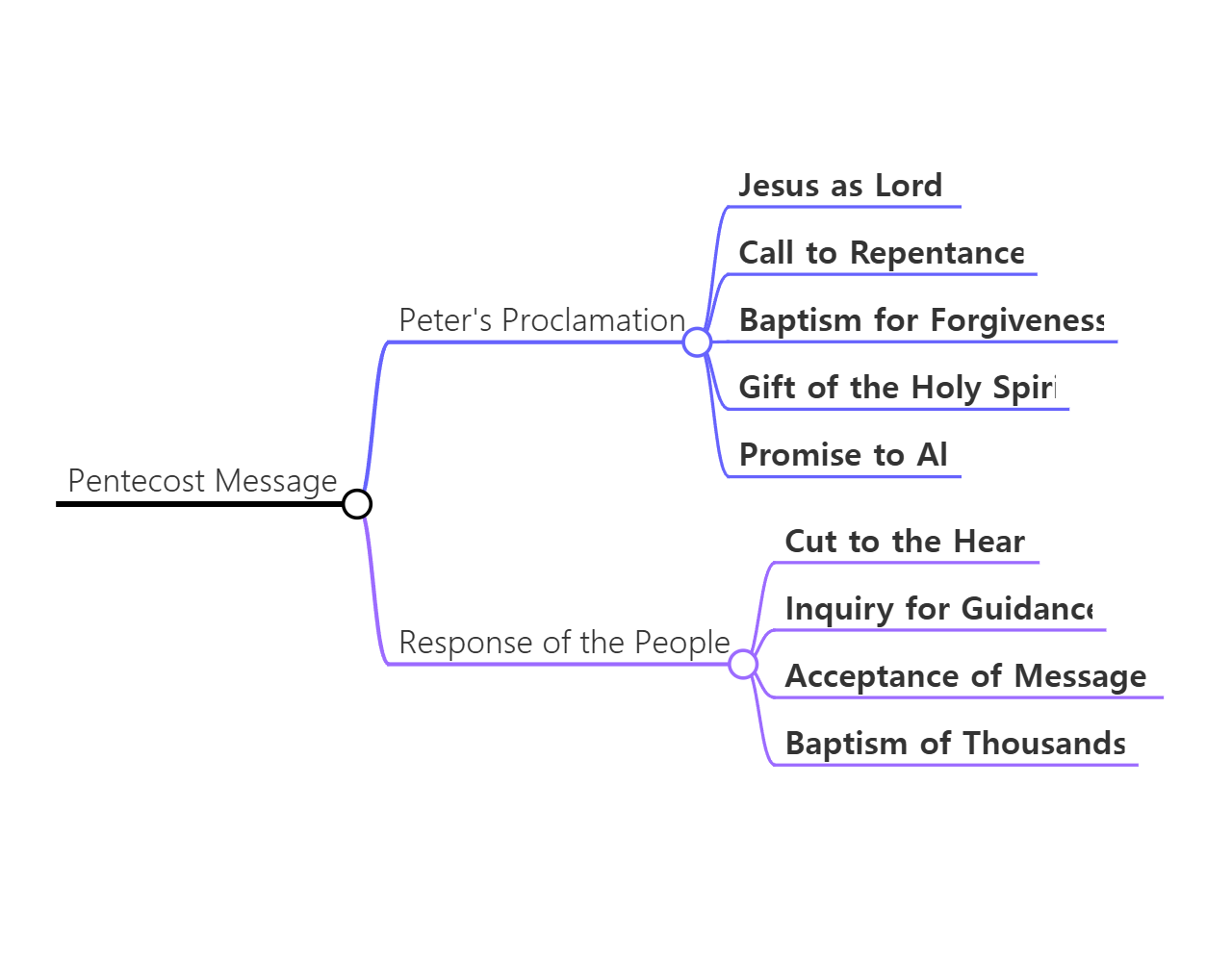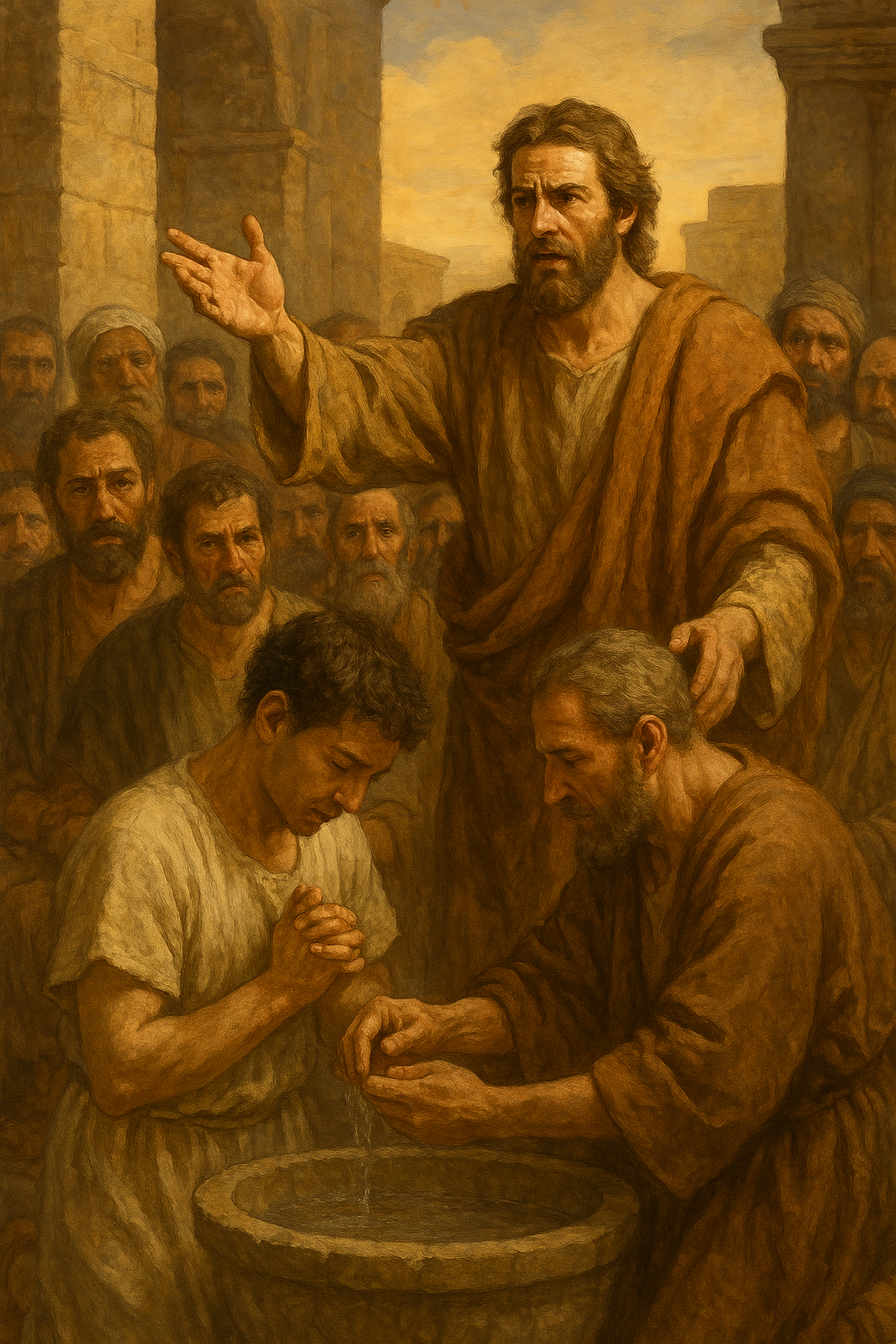Discover the transformative message of Peter on the Tuesday in the Octave of Easter. Learn how repentance and baptism in Jesus’ name brought salvation and the Holy Spirit to thousands.

Peter’s Call to Repentance: A Transformative Message After Pentecost
The Power of Peter’s Sermon in the Octave of Easter
The Tuesday in the Octave of Easter offers one of the most powerful and emotionally stirring moments in the New Testament. This day recalls the Apostle Peter's bold proclamation to the Jewish people shortly after Pentecost—a message that sparked mass conversion and laid the foundation for the early Church.
This reflection, based on the official reading from the USCCB, sheds light on the significance of Peter’s sermon, his call to repentance, and the gift of the Holy Spirit promised to all who believe.
Peter Declares Jesus as Lord and Christ
Affirming God’s Divine Plan
On Pentecost, Peter stood before the people of Jerusalem and delivered a life-changing message. With unwavering conviction, he declared:
“Let the whole house of Israel know for certain that God has made him both Lord and Christ, this Jesus whom you crucified.” (Acts 2:36)
This statement not only identified Jesus as the long-awaited Messiah but also confronted the crowd with the gravity of their actions. Yet Peter's intention was not to condemn, but to invite transformation.

The People’s Emotional Response
“What Are We to Do, My Brothers?”
Peter’s words struck a deep chord. The people were “cut to the heart,” a sign of genuine remorse and spiritual awakening. Their response:
“What are we to do, my brothers?” (Acts 2:37)
This question reflects a universal human longing—to seek redemption, purpose, and a renewed relationship with God. Peter saw the opportunity and gave them clear guidance.
Peter’s Instruction: Repent and Be Baptized
The Pathway to Forgiveness and the Holy Spirit
Peter replied with a timeless command:
“Repent and be baptized, every one of you, in the name of Jesus Christ for the forgiveness of your sins; and you will receive the gift of the Holy Spirit.” (Acts 2:38)
This formula—repentance, baptism, forgiveness, and the Holy Spirit—became the core of Christian initiation. It wasn't just for the crowd of that day, but for all people across generations.

A Universal Promise
From Jerusalem to the Ends of the Earth
Peter emphasized the inclusive nature of God’s promise:
“For the promise is made to you and to your children and to all those far off, whomever the Lord our God will call.” (Acts 2:39)
This declaration opened the door to a global faith. Salvation was no longer limited to a specific group—it was extended to all who would believe and respond in faith.
The Impact: Three Thousand Souls Transformed
A Revival Begins
Scripture records a miraculous outcome:
“Those who accepted his message were baptized, and about three thousand persons were added that day.” (Acts 2:41)
This mass conversion marked the birth of the early Church—a testament to the power of Spirit-filled preaching and the readiness of human hearts to be changed.

Reflection: What Does Peter’s Message Mean for Us Today?
In a world filled with noise and confusion, Peter’s message offers clarity. His call to repentance, faith in Christ, and openness to the Holy Spirit remains as relevant today as it was two thousand years ago. Whether you're exploring faith for the first time or seeking renewal, the invitation still stands:
Repent. Be baptized. Receive the Holy Spirit. Live a new life.
Conclusion
The Tuesday in the Octave of Easter reminds us of the early Church’s explosive beginning—rooted in one powerful sermon and the work of the Holy Spirit. Peter’s boldness, the crowd’s humility, and God’s faithful promise changed history forever.
May we respond with the same open hearts, asking even now:
"What are we to do?"